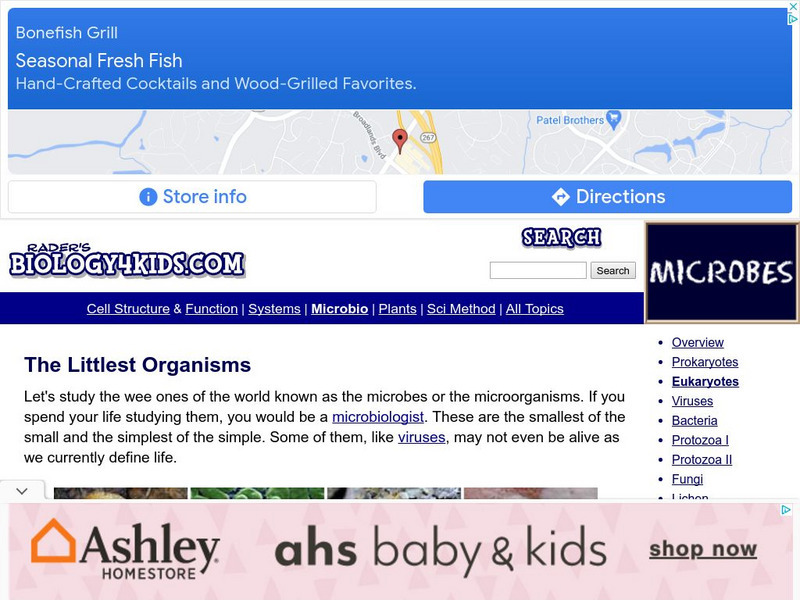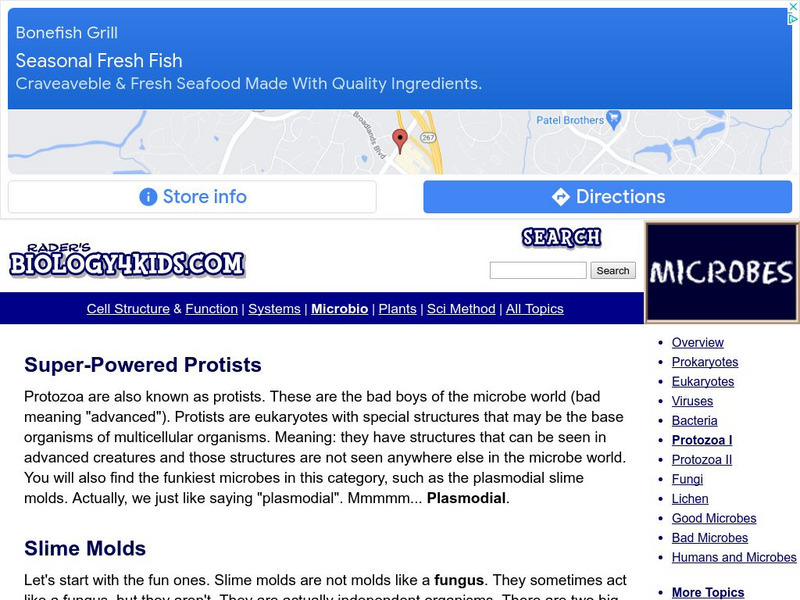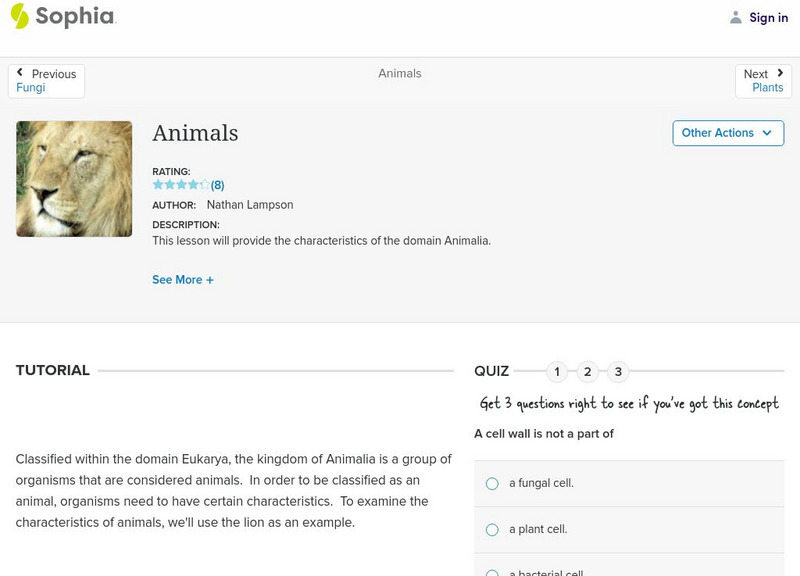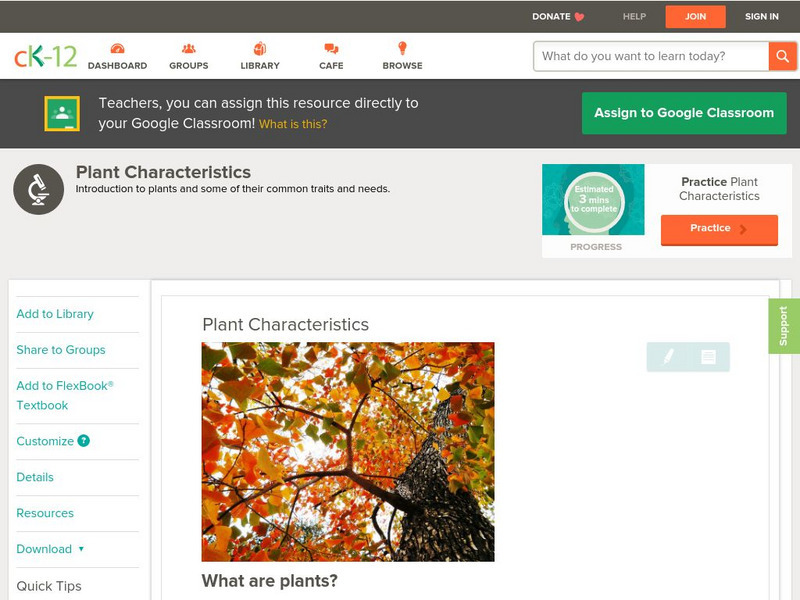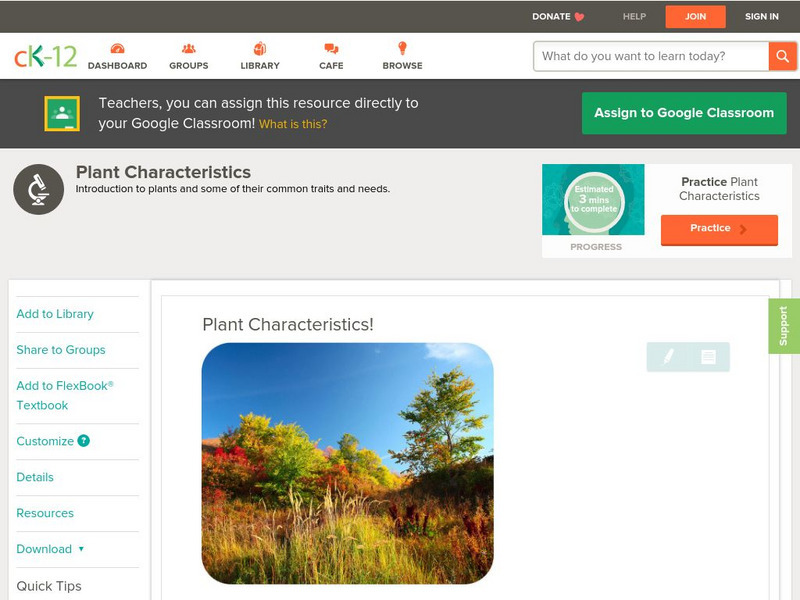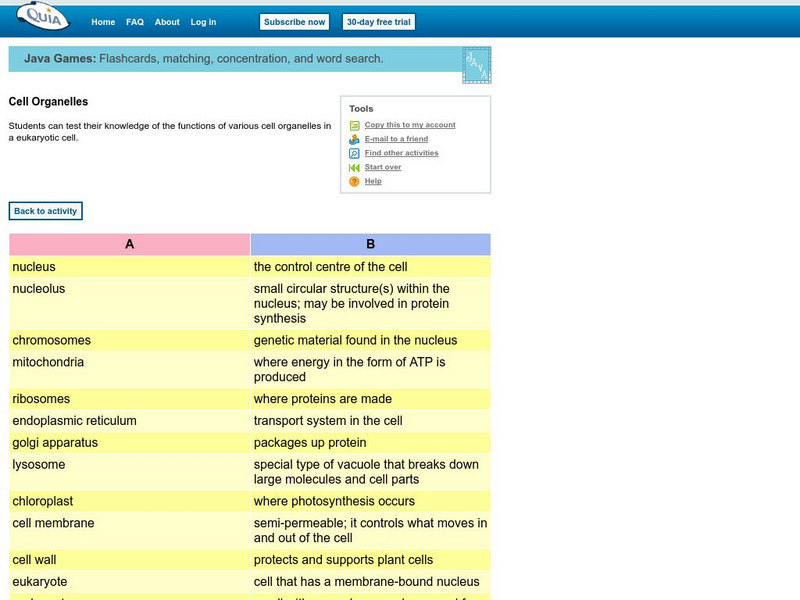Biology 4 kids
Biology4 Kids: Eukaryotes Cells With Parts
Young researchers will discover many facts about eukaryotes.
Biology 4 kids
Biology4 Kids: Super Powered Protists
Meet the "big guys" on campus. Protists are the more advanced types of eukaryotes that are unique such as amoeba and slime molds.
Sophia Learning
Sophia: Animals
This lesson will provide the characteristics of the kingdom Animalia.
CK-12 Foundation
Ck 12: Biology: Plant Characteristics
[Free Registration/Login may be required to access all resource tools.] Introduction to plants and some of their common traits and needs.
ClassFlow
Class Flow: Cell Presentation
[Free Registration/Login Required] This Flipchart will go over the basic parts of a cell.
CK-12 Foundation
Ck 12: Biology: Plant Characteristics
[Free Registration/Login may be required to access all resource tools.] Introduction to plants and some of their common traits and needs.
BiologyWise
Biology Wise: Reproduction in Fungi
Presents interesting facts about fungi and describes how they reproduce both sexually and asexually.
BiologyWise
Biology Wise: Types of Fungi
Explains what fungi are, some of their characteristics, and the different types.
BiologyWise
Biology Wise: A Brief Comparison of Plant Cell vs. Animal Cell
Presents labeled illustrations of a plant cell and an animal cell which demonstrate the parts that are common and different. This is followed by a discussion of their similarities and then of their differences.
BiologyWise
Biology Wise: Paramecium Facts
Describes the characteristics of Paramecia, their locomotion, and method of reproduction.
BiologyWise
Biology Wise: Amoeba Facts
Presents facts about amoebas, including their physical characteristics, reproduction, and classification.
BiologyWise
Biology Wise: Vorticella Facts
Find lots of information about vorticella, a protozoan, here. Discusses anatomy and physical characteristics, size, habitat, and method of reproduction.
BiologyWise
Biology Wise: Multicellular vs. Unicellular Organisms
Describes the characteristics of unicellular and multicellular organisms and gives examples for each.
BiologyWise
Biology Wise: Unicellular Organisms
A unicellular organism is made of only a single cell. Its characteristics are described and several examples are provided.
BiologyWise
Biology Wise: Examples of Protists
Explains what protists are and describes some examples.
BiologyWise
Biology Wise: An Overview of the Euglena Classification
Describes the classification, structure, habitat, lifespan, method of reproduction, and diet of Euglena, a unicellular organism.
BiologyWise
Biology Wise: Diatoms Facts
Provides information about diatoms, including their physical characteristics, where they can be found, their classification, how they reproduce, how they form diatomaceous earth when they become fossilized, and their importance to...
BiologyWise
Biology Wise: Similarities Between Prokaryotic and Eukaryotic Cells
Discusses the features of prokaryotic and eukaryotic cells that are similar.
BiologyWise
Biology Wise: Classification of Amoeba (Ameba)
Describes the characteristics of amoeba and their classification.
BiologyWise
Biology Wise: Information About Animal Cells
Explains the differences between eukaryotic and prokaryotic cells and presents a diverse set of facts about animal cells.


